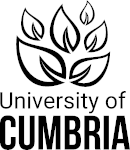
University of Cumbria helps shape global rewilding guidelines launched at World Conservation Congress
The University of Cumbria has played a pivotal role in shaping a landmark set of international guidelines for rewilding that have been launched at the International Union for Conservation of Nature (IUCN) World Conservation Congress 2025 in Abu Dhabi.
Developed by the Rewilding Thematic Group of the IUCN Commission on Ecosystem Management (CEM), the new guidelines offer an evidence-informed framework for restoring ecosystems worldwide.
Professor Ian Convery, co-chair of the IUCN CEM Rewilding Thematic Group and Professor of Environment & Society at the University of Cumbria, co-authored the guidelines alongside a global team of experts. The team also included Sally Hawkins who is a former University of Cumbria postgraduate researcher now working in Australia.
The guidelines reflect contributions from over 60 organisations and hundreds of practitioners, policymakers, scientists, and community representatives.
“It’s been a privilege to help shape global rewilding policy through the IUCN,” said Professor Convery, who describes rewilding as a ‘bold yet pragmatic approach to ecological restoration’.
“The University of Cumbria’s work, from the Back On Our Map (BOOM) project’s species restoration to our pine marten reintroduction in South Cumbria, shows how research, policy and place-based action can work hand in hand. These new IUCN guidelines capture that same ethos, combining science, inclusivity and optimism to restore thriving landscapes for people and nature.”
The University of Cumbria’s Institute of Science and Environment (IoSE) research and applied projects have helped inform the development of rewilding practice.
They include the BOOM project, which ran until 2024 and successfully restored locally extinct species across South Cumbria. It has reconnected fragmented habitats and engaging communities in nature recovery. Building on that legacy, the South Cumbria Pine Marten Recovery Project is now re-establishing a self-sustaining pine marten population, strengthening ecosystem function and deepening local involvement.
A Professor of Conservation Science, Professor Robert (Bob) Montgomery is Director of the Centre for National Parks and Protected Areas and also Director of Research and Knowledge Exchange in the Institute of Science and Environment at the University of Cumbria.
Professor Montgomery said: “This collaboration provides yet another example of the stalwart ways in which the University of Cumbria is developing and driving partnerships globally to protect the integrity of coupled human and natural systems.”
The IUCN CEM guidelines on rewilding recognise the diversity of rewilding approaches worldwide, while articulating a shared vision for rewilding. Grounded in ecological science and informed by social science insights, they provide a flexible framework that can be adapted to various environmental, cultural and governance contexts.
The IUCN CEM rewilding guidelines can be found at https://portals.iucn.org/library/node/52582
The IUCN 2025 World Conservation Congress runs until 15 October. It is an event that takes place every four years and brings together thousands of organisations, scientists, policy experts, business leaders and professionals from around the globe to help set the agenda for future nature conservation.
ENDS
Notes to editors
Images
Main picture - logos for IUCN CEM Thematic Group
Second image - Professor Ian Convery, of University of Cumbria. CREDIT: Megan Richards

